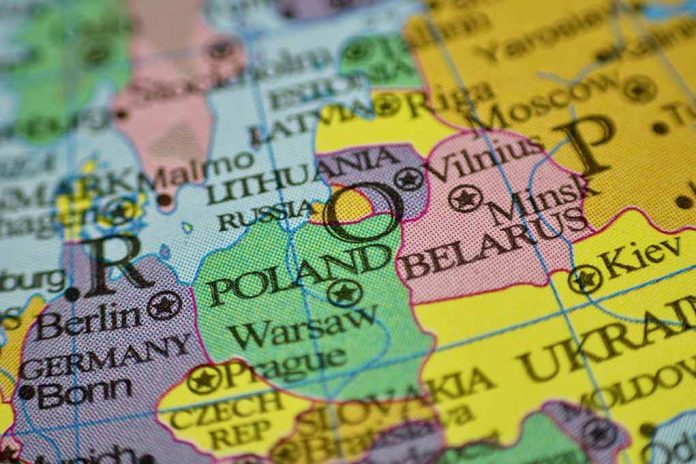
Germany’s unprecedented military commitment to Lithuania represents a pivotal moment for NATO’s eastern defense in the face of rising tensions with Russia.
Key Takeaways
- Germany deploys a brigade to Lithuania for long-term NATO defense.
- Deployment strengthens NATO’s stance on its eastern flank.
- There will be an establishment of a permanent military presence by 2027.
- Germany’s move marks its first permanent overseas troops since WWII.
Germany’s Militaristic Strategy in Lithuania
In a strategic response to escalating tensions in Eastern Europe, Germany is deploying a military brigade to Lithuania. Commanded by Brigadier General Christoph Huber, this move signifies Germany’s first permanent foreign troop deployment since World War II. Aimed at bolstering NATO’s defense on its eastern front, the operation ensures Germany’s firm commitment to NATO’s mission and enhances protection for Lithuania against potential Russian threats.
The fully operational status of this unit is anticipated by 2027, with significant infrastructure being built near the Lithuanian-Belarus border. This deployment, following an activation ceremony in Vilnius, highlights the evolving landscape of regional security challenges. Initially, 150 German personnel were stationed, with expectations to reach 500 by the end of the year, ultimately leading to a brigade strength of up to 5,000 soldiers.
Germany’s Response Amid Russian Pressure
The gravity of Russia’s position in Eastern Europe has led Germany to prepare comprehensively, encompassing a possible scenario that includes deploying vast NATO forces in the region. According to confidential documents, Germany’s “Operation Deutschland” outlines preparatory steps for a potential World War III, underscoring the country’s vigilant stance.
“Putin is playing with our fear. He didn’t just start doing this 1,000 days ago [when Russia invaded Ukraine], he started back in 2014 [when Russia annexed Crimea],” German Foreign Minister Annalena Baerbock had previously said.
Germany is also urging its citizens to become more self-sufficient in energy and resources, reflecting widespread concern over the potential for conflict. These measures reflect Germany’s adjusted strategy in addressing the geographical and security complexities facing Europe.
The Broader NATO Defense Strategy
The deployment aligns with NATO’s broader strategy to enhance defenses along its eastern boundaries, particularly as Lithuania shares borders with both Russia’s exclave of Kaliningrad and Belarus. The presence of German troops symbolizes a crucial element in NATO’s adaptive strategy to counter potential military escalations by Russia.
“We have a clear mission. We have to ensure the protection, freedom and security of our Lithuanian allies here on NATO’s eastern flank,” said the unit’s leader, Brigadier General Christoph Huber.
The permanent stationing of troops reflects not only Germany’s commitment to collective defense but also represents a major strategic shift after years of confining operations to more traditional, temporary missions in conflict zones like Afghanistan.


